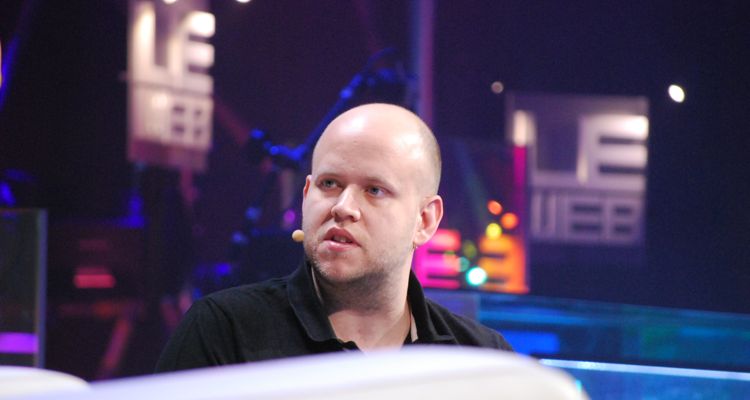Spotify CEO Daniel Ek is officially set to provide an up to three-hour-long deposition as part of a long-running courtroom confrontation involving his company, the Harry Fox Agency, Eminem publisher Eight Mile Style, and Kobalt.
The underlying legal battle initiated back in August of 2019, when Eight Mile Style accused Spotify of infringing upon 243 Eminem compositions – and, in turn, failing to pay royalties for billions of plays. Eight Mile demanded north of $36 million in damages as well as “advertising revenue and the value of the equity interest Eight Mile was deprived of by virtue of the infringement.”
Spotify promptly pushed back against the suit, expressing the belief that it “lacks merit.” Additionally, the Stockholm-based service indicated that it had been “licensed by Eight Mile’s agent, Kobalt” to offer the Eminem works in question to listeners. 2020 then saw Spotify name Kobalt Music Publishing as a third-party defendant.
Later that same year, Eight Mile Style added the Harry Fox Agency to the case, maintaining that it and Spotify had concocted a “fraudulent scheme” designed to conceal the latter’s alleged “failure to acquire timely compulsory mechanical licenses.”
“HFA sent out knowingly fraudulent ‘royalty statements,’ which HFA knew were woefully incomplete and inaccurate, in order to lead Eight Mile into believing that the Eight Mile Compositions were licensed when HFA knew that they were not,” the Eminem publisher elaborated in a 2021 legal filing.
“The Eight Mile Compositions were streamed on Spotify billions of times. Spotify, however, has not accounted to Eight Mile for these streams and only submitted random payments, which only purport to account for a fraction of the actual streams on some of the Eight Mile Compositions,” the plaintiff continued, claiming also that Spotify isn’t entitled to liability protection under the Music Modernization Act.
Now, as mentioned at the outset, Daniel Ek has been ordered to provide an up to three-hour deposition, with the court denying Spotify’s motion for a protective order.
Judge Jeffery S. Frensley just recently rejected said motion and outlined the specifics of Ek’s (remote) deposition, legal filings have revealed. The plaintiffs are seeking information pertaining to topics like “the creation of Spotify,” “licensing practices at that time and shortly after inception,” “MMA compliance,” “accounting policies,” and “software and policies implemented to assist in composition matching.”
Spotify, the judge reiterated in his 16-page decision, contended that the protective order was “warranted because Mr. Ek lacks personal knowledge of the issues in this case, deposing Mr. Ek would result in annoyance, harassment, and undue burden and expense and testimony,” and the sought information could be obtained from different execs (and former execs).
And Eight Mile Style, on the other hand, said that Spotify’s suggested replacements for Ek in the deposition – former global head of publishing Adam Parness, current global head of publishing solutions Lisa Selden, and current associate general counsel for global publishing Lucy Bridgwood among them – would be “inadequate” for “various reasons,” per this newest filing.
“The Court finds that Spotify has not established that the testimony of any of these individuals is a complete and appropriate substitute for that of Mr. Ek…None of them appear to have access to the exact same information as Mr. Ek, in part because (aside from Mr. Duffett-Smith), none of them were with the company at the time of Spotify’s U.S. launch.
“The Court credits Spotify’s assertion that he is very busy indeed. Yet, the issue of proper licensing relationships with the artists whose work comprises the entirety of Spotify’s business and its sole product is surely also a matter of importance to Spotify, worthy of some of Mr. Ek’s time and attention,” the document proceeds.
“Plaintiffs may take the deposition of Mr. Ek by remote means only for a maximum of three hours,” the filing concludes.
Source: Music Digital News








